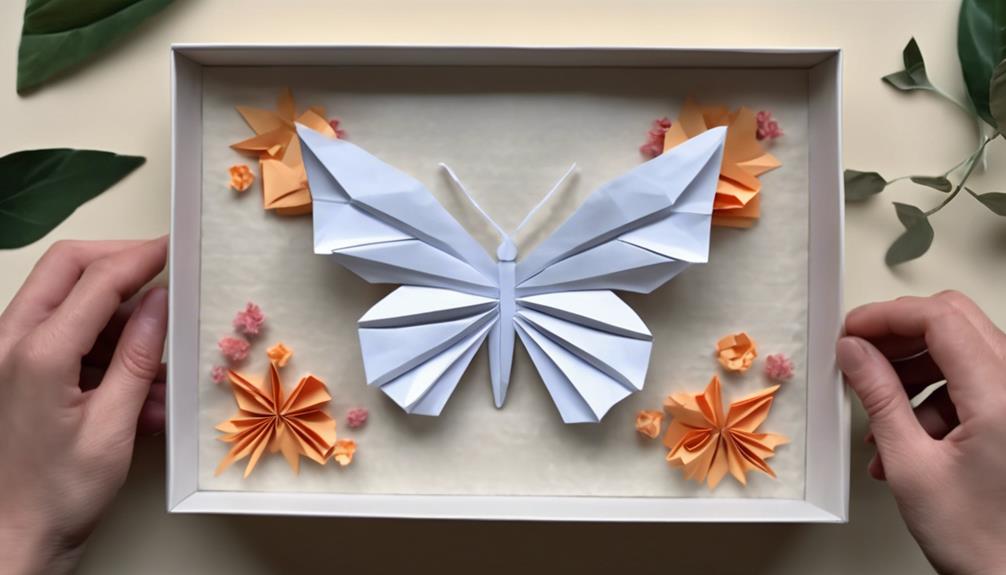To become proficient in the art of releasing, begin by acknowledging signs of stress and limited outcomes. Surrender control by having faith in the process and allowing things to naturally unfold. Set clear boundaries for emotional well-being, honoring personal limits and prioritizing self-care. Embrace personal growth by facing fears and nurturing self-discovery through mindfulness and gratitude. Take bold steps towards change by stepping into the unknown and confronting fears directly. Letting go enables you to discover inner peace, welcome new opportunities, and promote personal development. Embracing change and growth sets the stage for a transformative path towards self-discovery and fulfillment.
Key Takeaways
- Trust the process and let go of control for better outcomes.
- Establish and communicate healthy boundaries for emotional well-being.
- Release unhealthy attachments by maintaining essential distance.
- Embrace personal growth by confronting fears and limitations.
- Take courageous steps towards change for personal development.
Recognizing the Need for Release
To recognize the need for release, start by paying attention to the signs of stress and limited outcomes caused by holding on too tightly. When you try to control every aspect of a situation, it can lead to increased tension and restricted possibilities. Surrendering control doesn't mean giving up; rather, it involves trusting the process and allowing things to unfold naturally.
By reflecting on instances where letting go of rigid expectations could result in better outcomes, you begin to understand the significance of release. Feelings of frustration, anxiety, or resistance may indicate that it's time to surrender control and embrace uncertainty. Trusting in the process and being open to new perspectives are vital steps in recognizing the need for release.
As author Eckhart Tolle once said, 'Surrender is the simple but profound wisdom of yielding to, rather than opposing the flow of life.' So, let go of the need to control every detail and start trusting in the journey ahead.
Setting Healthy Boundaries
Establishing healthy boundaries in relationships involves clear communication and respecting personal limits to promote emotional well-being. By setting healthy boundaries, you're safeguarding your well-being and asserting your needs without guilt.
Clearly communicate your boundaries to others, expressing your limits and expectations. This allows you to prioritize self-care and prevent feelings of resentment or burnout. Boundaries help you maintain a sense of control over your life and protect your emotional health.
Remember that setting boundaries isn't about controlling others but about taking care of yourself. As you establish and enforce your boundaries, you're affirming your self-worth and showing others how you expect to be treated.
This can lead to more balanced and fulfilling relationships, where both parties respect each other's needs and limits. In the words of an expert, 'Setting boundaries is essential for maintaining healthy relationships and prioritizing your emotional well-being.'
Managing Emotional Detachment
Practicing emotional detachment involves creating healthy boundaries to safeguard your emotional well-being. It's about loosening your grip on trying to control others' actions or outcomes. By embracing emotional detachment, you can cultivate an open heart towards yourself and others, focusing on your feelings and needs. This approach empowers you to let go of unhealthy attachments and expectations, promoting inner peace and reducing stress in relationships.
Remember, emotional detachment doesn't mean shutting down your emotions completely but rather maintaining an essential distance to preserve your well-being. It allows you to navigate relationships with greater clarity and self-awareness.
As you practice emotional detachment, you'll find that you can release the need to micromanage situations and people, fostering a sense of freedom and peace within yourself.
In essence, managing emotional detachment is a crucial skill for cultivating inner peace and promoting healthy relationships. So, embrace this practice to nurture your emotional well-being and create harmonious connections with those around you.
Embracing Personal Growth
Embracing personal growth entails confronting fears and limitations that hinder progress, fostering a transformative journey towards self-discovery and fulfillment. Years ago, in high school, you may have felt restricted by self-imposed boundaries or societal expectations. However, by embracing personal growth, you open yourself up to new possibilities and allow things to unfold naturally. This shift from control to surrender is essential in cultivating inner peace and well-being.
Recognizing the importance of self-worth and inner peace in personal development is vital for fostering growth and fulfillment. By practicing mindfulness and gratitude in the present moment, you enhance your awareness, promote inner growth, and improve overall well-being.
This journey towards personal growth may not always be easy, but it's valuable in the long run. As you continue to let go of fears and limitations, you pave the way for a more fulfilling and enriching life.
Courageous Steps Towards Change
Facing fears and limitations head-on, you take bold steps towards change, paving the way for personal growth and transformation. Letting go of the familiar and stepping out of comfort zones is essential in the journey towards embracing change. By venturing into the unknown and relinquishing control over every detail, you open yourself up to new opportunities and possibilities. It's through these courageous actions that true growth and transformation occur.
Trusting in the process is a fundamental aspect of making courageous changes. It involves having faith in the journey, even when the outcome is uncertain. Embracing change with courage allows for personal development and self-discovery. As you navigate through the challenges and uncertainties, remember that each step taken is a sign of your strength and resilience.
In the words of an unknown author, 'Courage isn't the absence of fear, but the triumph over it.' By facing your fears head-on, you pave the way for a brighter future filled with growth and transformation.
Frequently Asked Questions
How Do You Master the Skill of Letting Go?
To master the skill of letting go, you need to shift from control to surrender. Trust in life's flow, practice mindfulness, and question your need for control. Release specific outcomes, embrace freedom, and visualize the shift.
How to Do the Letting Go Technique?
When it comes to letting go, remember this: like a kite soaring in the wind, you must release your grip to let it dance freely. Acknowledge fears, release control, trust the process, and embrace peace.
How to Master the Art of Letting Go?
To master the art of letting go, start by accepting reality and trusting the natural flow of life. Take action from a place of peace, not control. Shift to surrender for better outcomes and less stress.
What Is the Summary of Letting Go by David Hawkins?
Attain ultimate understanding: surrender. David Hawkins' letting go leads to serenity. Release control, embrace flow. Shed emotional weight for spiritual growth. Surrender equals clarity, freedom, enlightenment. Let go, find peace within.
How Can Letting Go Help When Life Gets Hard?
When life gets hard, letting go can be a surprising solution to life’s challenges. By releasing control and accepting the situation, we free ourselves from unnecessary stress and burdens. Letting go allows for new perspectives and opportunities to emerge, leading to a sense of clarity and peace amidst difficulty.
Conclusion
Letting go is like shedding old skin, revealing a new layer of resilience and growth. It requires courage, patience, and a willingness to embrace change.
Remember, releasing control doesn't mean losing power, but rather gaining freedom. So, take a deep breath, trust the process, and let go of what no longer serves you.
In the end, you'll emerge stronger, wiser, and ready to face whatever comes your way.









